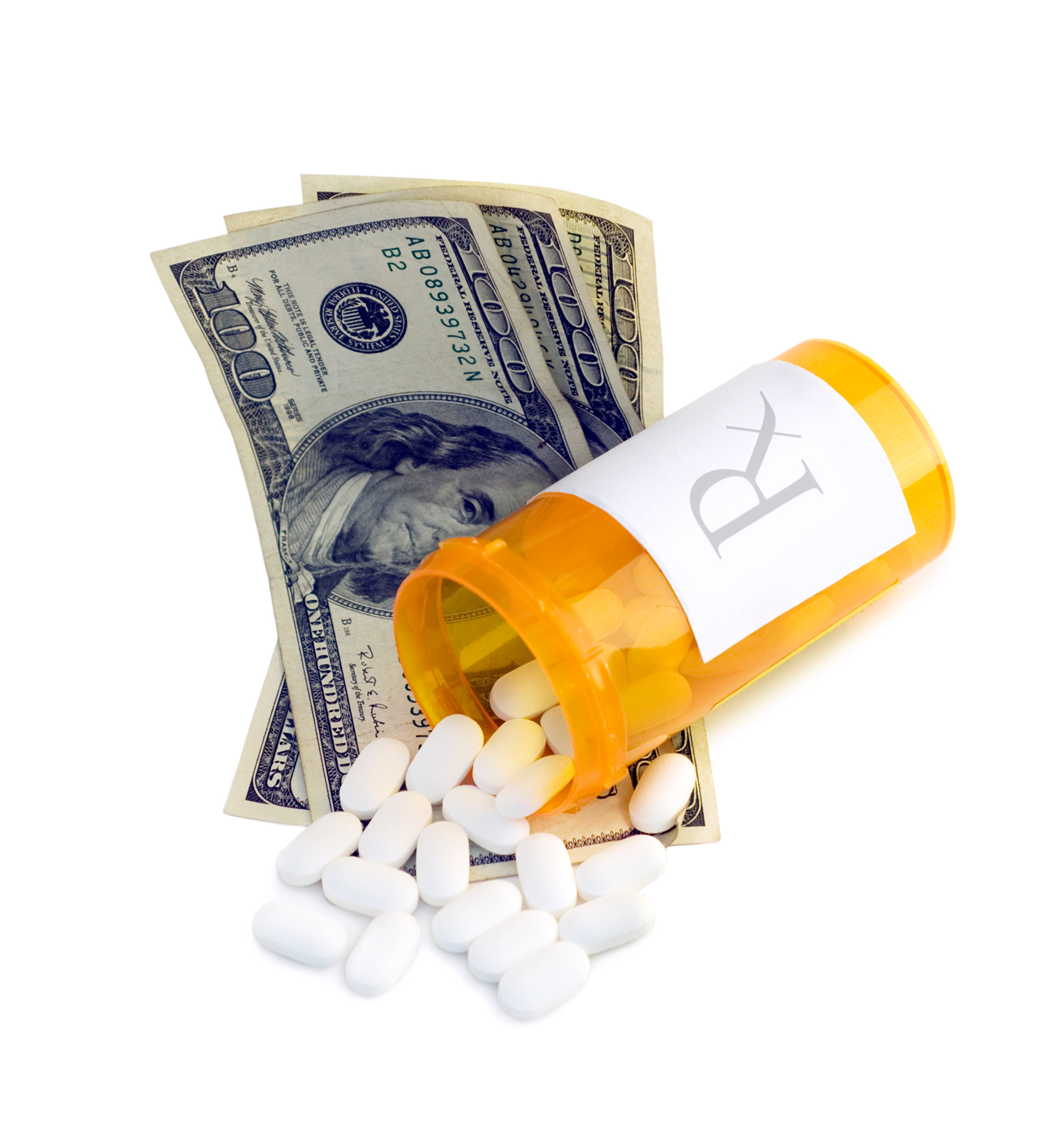Are There Any Risks To Prescription Weight Loss Drugs Like Ozempic and Mounjaro?
August 30, 2023
 1258
1258 
Written By: Jack Riess NASM Certified Personal Trainer, Author, and Life Long Researcher of Health and Longevity.
Imagine being given a magic pill, one that promises to melt away those stubborn pounds.
Now, imagine that same pill coming with a laundry list of alarming side effects—ranging from gastrointestinal issues to severe psychological distress—that could alter the course of your life.
It might sound like the premise of a dystopian novel, but for millions who have turned to prescription weight loss drugs, this unsettling scenario is a daily reality.
The weight loss industry is far from shrinking; on the contrary, it’s ballooning at an exponential rate.
By 2025, the global market for weight loss supplements and drugs is projected to exceed $33 billion.
Names like Ozempic, Wegovy, Phentermine, Qsymia, Rybelsus, and Contrave have become the harbingers of this new wave of medicalized weight loss.
These prescription drugs are flying off pharmacy shelves, often endorsed by doctors and glamorized as modern-day miracles.
But miracles come at a cost.
Today, we will dismantle the glossy veneer that shields these drugs, exposing the serious risks and side effects that accompany their use.
This isn’t a witch-hunt; it’s a call for informed decision-making.
So, fasten your seat belts as we navigate the tumultuous landscape of prescription weight loss drugs and steer towards a solution that respects both your waistline and your health.

If weight loss is a religion, then prescription drugs have become its high priests.
The global market size is not just big; it’s astronomical.
A value of $33 billion by 2025 has been forecasted, making it one of the most lucrative sectors in healthcare.
While over-the-counter supplements continue to attract consumer attention, it’s prescription medications like Ozempic, Wegovy, Phentermine, Qsymia, Rybelsus, and Contrave that are drawing serious investment, both from pharmaceutical companies and consumers.
Why?
Because these drugs come with the ‘assurance’ of clinical tests and medical endorsements, making them ostensibly reliable avenues for weight loss.
But what often goes unnoticed is the marketing muscle behind these medications.
Pharmaceutical companies invest heavily in advertising, clinical presentations, and even partnerships with celebrities and influencers, all aimed at cementing the status of these drugs as the ultimate solution to obesity or even just moderate weight issues.
These strategies have not only increased sales but have also influenced public perception, making many believe that these pills are the only effective path to weight loss.
The clientele for prescription weight loss drugs is as diverse as it is large.
Gone are the days when these medications were primarily for those with medical conditions exacerbated by weight, such as diabetes or cardiovascular issues.
Today, everyone from millennials aiming for the ‘perfect’ Instagram body, to middle-aged adults grappling with metabolic slowdown, and even seniors focused on improving their mobility are part of the demographic.
So, why this universal appeal?
Firstly, the allure of quick, ‘guaranteed’ results is irresistible.
With social and sometimes even professional success seemingly hinging on physical appearance, many feel pressured to lose weight quickly.
Secondly, there’s the notion that if a healthcare provider prescribes it, it must be safe and effective.
This idea serves as a potent validation for many who are skeptical about more traditional weight loss methods like diet and exercise.
In a society that often values quick fixes over sustainable change, prescription weight loss drugs have found their perfect marketplace.
But before you join the bandwagon, it’s crucial to weigh the pros against the serious cons, as we will delve into in the coming sections.
The Major Players in Weight Loss Drugs Today

Let’s kick off our exploration with Ozempic and Wegovy.
Both are formulated with semaglutide, a medication initially developed to treat type 2 diabetes but found to be effective for weight loss.
They work by mimicking a hormone that interacts with the brain’s appetite regulation centers, which reduces hunger sensations.
It sounds like a godsend, doesn’t it?
But there’s a darker side.
These medications come with a string of unsettling side effects.
Users often report gastrointestinal issues such as nausea, vomiting, and diarrhea. However, far more concerning are the cardiovascular risks.
Increased heart rate and potential links to heart issues pose significant threats, especially for those with pre-existing conditions.
Animal studies have also shown a correlation between these drugs and thyroid tumors, which raises questions about their long-term safety for humans.
Phentermine and Qsymia have been on the market for some time but remain in demand.
Phentermine acts as a stimulant that affects the central nervous system, effectively reducing appetite.
Qsymia combines phentermine with topiramate, an antiepileptic drug, to have a similar appetite-suppressing effect.
As with Ozempic and Wegovy, the side effects can be harrowing.
Phentermine has been linked to elevated blood pressure, palpitations, and even more severe cardiovascular issues.
Qsymia not only shares these risks but also brings along others like dizziness, insomnia, and tingling in the hands and feet.
These drugs are contraindicated for certain groups, including pregnant women, due to the risk of birth defects.
Finally, let’s delve into Rybelsus and Contrave.
Rybelsus is another semaglutide-based drug but in an oral form.
It works similarly to Ozempic and Wegovy by suppressing appetite through brain signaling.
Contrave, on the other hand, combines bupropion, an antidepressant, with naltrexone, used primarily for alcohol and opioid dependency.
This mix impacts brain circuits that control food cravings.
Yet again, the side effects are far from negligible.
Rybelsus carries the same risks as its semaglutide siblings, including gastrointestinal distress and potential cardiovascular issues.
Contrave ups the ante with a black-box warning, the FDA’s most stringent caution, indicating it may increase suicidal thoughts.
Other risks include seizures, elevated blood pressure, and liver damage.
In each of these cases, the drugs’ potent effects on the body come with risks that shouldn’t be taken lightly.
The allure of shedding pounds quickly and ‘effortlessly’ may seem tempting, but at what cost to your health?
As we peel back the layers on these popular medications, the trade-offs become increasingly hard to justify.

While the allure of these prescription weight loss drugs lies in their promised efficacy, the devil, as they say, is in the details.
We’ve touched on some side effects specific to individual drugs, but it’s essential to highlight the broader physical ramifications of this category of medication.
First and foremost are gastrointestinal issues, which range from mild inconveniences like bloating and flatulence to more severe symptoms like nausea, vomiting, and diarrhea.
Cardiovascular risks are another glaring concern, with palpitations, elevated blood pressure, and even more serious heart conditions at the forefront.
And let’s not forget the metabolic imbalances they may cause, such as elevated blood sugar levels and nutrient deficiencies, which can lead to a host of other health complications over time.
For those with existing liver or kidney conditions, these drugs can exacerbate the issues, sometimes critically.
As if the physical toll weren’t enough, the psychological side effects add another layer of complexity.
Weight loss drugs like Contrave come with black-box warnings about the potential to trigger suicidal thoughts—a top-tier caution by the FDA.
But even beyond such drastic effects, the impact on mental health can be subtle but damaging.
There is the anxiety stemming from potential health risks, and the stress associated with rapid physiological changes.
Additionally, the altered brain signaling meant to suppress appetite may lead to mood swings and depressive states.
The term ‘clinically approved’ often serves as a comfort blanket, making us believe that if a drug has passed through regulatory scrutiny, it must be safe.
However, it’s crucial to understand that ‘approval’ doesn’t equate to ‘risk-free.’
Regulatory agencies often base their decisions on short-term studies that don’t necessarily reveal the long-term effects and risks.
Moreover, oversight is far from stringent, with post-marketing surveillance often lagging, making it difficult to gauge the full scope of potential side effects until they become too significant to ignore.
So, as we look under the hood of these clinically approved miracles, it becomes evident that the assurances offered are, at best, flimsy and, at worst, misleading.
Before you reach for that prescription pad, it’s worth considering whether the quick-fix solution you’re after is worth the gamble with your long-term health.

For those who think the dangers are merely academic, let’s take a detour through the real world.
Sarah, a 32-year-old working professional, was elated when she lost 15 pounds within the first month of starting her prescription medication.
But then, she began experiencing palpitations and excessive fatigue.
An urgent visit to the cardiologist revealed that her heart rate had skyrocketed, necessitating immediate discontinuation of the drug.
Another testimonial comes from Mark, a 45-year-old father of two, who found himself fighting severe bouts of depression within weeks of starting his weight loss medication, something he had never experienced before.
These aren’t isolated instances but snippets from a vast library of disturbing personal accounts, which raise the question: Are the results worth the risks?
Medical professionals often tread cautiously when it comes to prescription weight loss drugs.
Dr. Elizabeth Wilson, a renowned endocrinologist, warns that “These medications should be a last resort and only considered for those with severe obesity-related health conditions. The risk-to-benefit ratio for general weight loss is not justified given the potential side effects.”
Dr. Alan Greene, a prominent cardiologist, echoes the sentiment, stating, “It’s crucial to understand that these are potent drugs affecting essential physiological functions. They are not ‘magic bullets’ and come with a slew of risks, including serious cardiovascular effects.”
These experts, along with many in the healthcare industry, advocate for a more holistic approach to weight loss, urging patients to consider lifestyle modifications like diet and exercise as first-line interventions.
Their warnings serve as sober reminders that what may appear to be a convenient shortcut to weight loss can lead to a labyrinth of health complications that could have lasting ramifications.
This level of professional caution contrasts starkly with the advertising hype and raises questions about the ethics of prescribing such potent medications for something achievable through safer, albeit slower, means.

In the cacophony of options claiming to assist with weight loss, the rising star is a category of compounds known as varins, specifically found in certain rare strains of hemp oil.
Varins, or propyl cannabinoids, are similar to regular cannabinoids but have a slightly altered molecular structure that offers a range of health benefits.
One of these is the potential for weight loss, a finding supported by emerging research.
Unlike the addictive nature or risky side effects often associated with prescription weight loss medications, varins present a more balanced and natural approach to tackling the weight loss conundrum.
It’s important to note that varins have absolutely no psychoactive properties. Meaning you do not get “high” from them at all.
If the laundry list of side effects attached to prescription weight loss drugs has you second-guessing, hemp oil high in varins provides a breath of fresh air.
First, let’s talk safety: being a natural compound, hemp oil high in varins comes with zero known side effects when used correctly.
No heart palpitations, no mood swings, no gastrointestinal nightmares.
Secondly, it works harmoniously with your body’s physiology.
Rather than disrupting your natural processes, hemp oil balances them, thereby aiding weight loss without the hazards of chemical imbalance.
Furthermore, aside from weight loss, varins in hemp oil have other health benefits like anti-inflammatory properties and potential anxiety relief, making it an overall wellness product.
Like any wellness product, the key to maximizing the benefits of hemp oil lies in its correct usage.
Always consult a healthcare provider to ensure that hemp oil is the right solution for you, especially if you’re pregnant, nursing, or have a medical condition.
Once you get the go-ahead, start with a low dose and gradually work your way up to find the sweet spot that aligns with your weight loss goals.
Hemp oil can be ingested in several ways, from tinctures and capsules to edibles and even topical applications.
In closing, hemp oil high in varins serves as a viable natural alternative for those looking to shed weight safely and without the risks posed by prescription medications.
While the fast-paced world gravitates towards quick fixes, let’s not overlook the age-old wisdom that nature, when respected and understood, offers us the best kind of medicine.

In this exploration, we’ve peeled back the shiny veneer of the prescription weight loss industry to expose the underlying dangers.
We’ve ventured into the mechanics and risks of popular drugs like Ozempic, Wegovy, Phentermine, Qsymia, Rybelsus, and Contrave, unveiling a landscape rife with physical and psychological pitfalls.
From heart complications to depression, the side effects of these drugs are far from benign.
The troubling stories of real people and stern warnings from healthcare professionals echo this sentiment.
But this journey doesn’t end on a grim note; it offers a pivot towards a safer path—hemp oil high in varins.
Nature’s bounty presents a way to mitigate the challenges of weight loss without gambling with your health.
The absence of side effects and the balanced, holistic approach that hemp oil offers are not just marketing bullet points; they are beacons of hope for a healthier lifestyle.
As you stand at the crossroads of your weight loss journey, the choice is clear.
Opt for a route that may be laden with risks, or choose a path that aligns with both safety and efficacy.
Equip yourself with knowledge, consult with healthcare providers, and make the informed choice your future self will thank you for.
References:
Market Research: “Weight Loss and Obesity Management Market by Equipment, Surgical, and Dietary Products – Global Forecast to 2025.” MarketsandMarkets. Link
FDA Approval Information: “FDA approves new drug treatment for chronic weight management, first since 2014.” U.S. Food and Drug Administration. Link
Clinical Study on Semaglutide: “Once-Weekly Semaglutide in Adults with Overweight or Obesity.” New England Journal of Medicine. Link
Cardiovascular Risks: “Phentermine Use and Risk of Adverse Cardiovascular Events.” Circulation. Link
Qsymia Side Effects: “Safety and Efficacy of Phentermine and Topiramate Extended-Release in Obese and Overweight Adults: A Randomized, Controlled Trial.” Obesity. Link
Rybelsus FDA Information: “FDA Approves Oral Semaglutide for Type 2 Diabetes.” U.S. Food and Drug Administration. Link
Contrave Warnings: “Contrave (Naltrexone/Bupropion): A Review of Safety and Efficacy.” American Journal of Medicine. Link
Patient Testimonials: “Weight Loss Drug Side Effects.” Healthline. Link
Expert Opinions: “Prescription Weight Loss Pills: Should You Use Them?” Mayo Clinic. Link
Endocrinology Perspectives: “Endocrinologist’s View on Weight Loss Medications.” Endocrine Society. Link
Cannabinoid Science: “Cannabinoid Varins: Understanding Their Effects and Potential Benefits.” Journal of Cannabis Research. Link
Hemp Oil and Varins: “Potential Health Benefits of Hemp Oil and Its Components.” Frontiers in Pharmacology. Link
Anti-Inflammatory Properties: “Cannabinoids and Anti-Inflammatory Effects.” Molecular Biology. Link
Safe Consumption: “Guidelines for Safe Use of Hemp Oil.” National Institutes of Health. Link
FDA and Drug Approval Process: “FDA Drug Approval Process.” U.S. Food and Drug Administration. Link

A new study suggests that a widely used sugar substitute found in diet sodas, chewing gum, and low-sugar yogurt may elevate insulin levels. This could increase the long-term risk of heart disease. “Artificial sweeteners have infiltrated nearly all types of food, making it crucial to understand their long-term health effects,” said Yihai Cao, senior author […]

Diet Coke has long been a fan-favorite among soda lovers who want a fizzy, guilt-free alternative to traditional soft drinks. While its zero-calorie, zero-sugar label makes it seem like a healthier option, the reality is far more concerning. Despite its undeniable popularity, Diet Coke’s nutritional profile has raised red flags among health experts for years. […]

New study shows that embracing an anti-inflammatory, plant-forward diet can support cognitive function and help reduce the risk of dementia. What You Eat Shapes Your Brain The food you eat doesn’t just impact your body—it also affects your brain. Research suggests that eating an anti-inflammatory, plant-based diet can help improve memory, focus, and overall brain […]